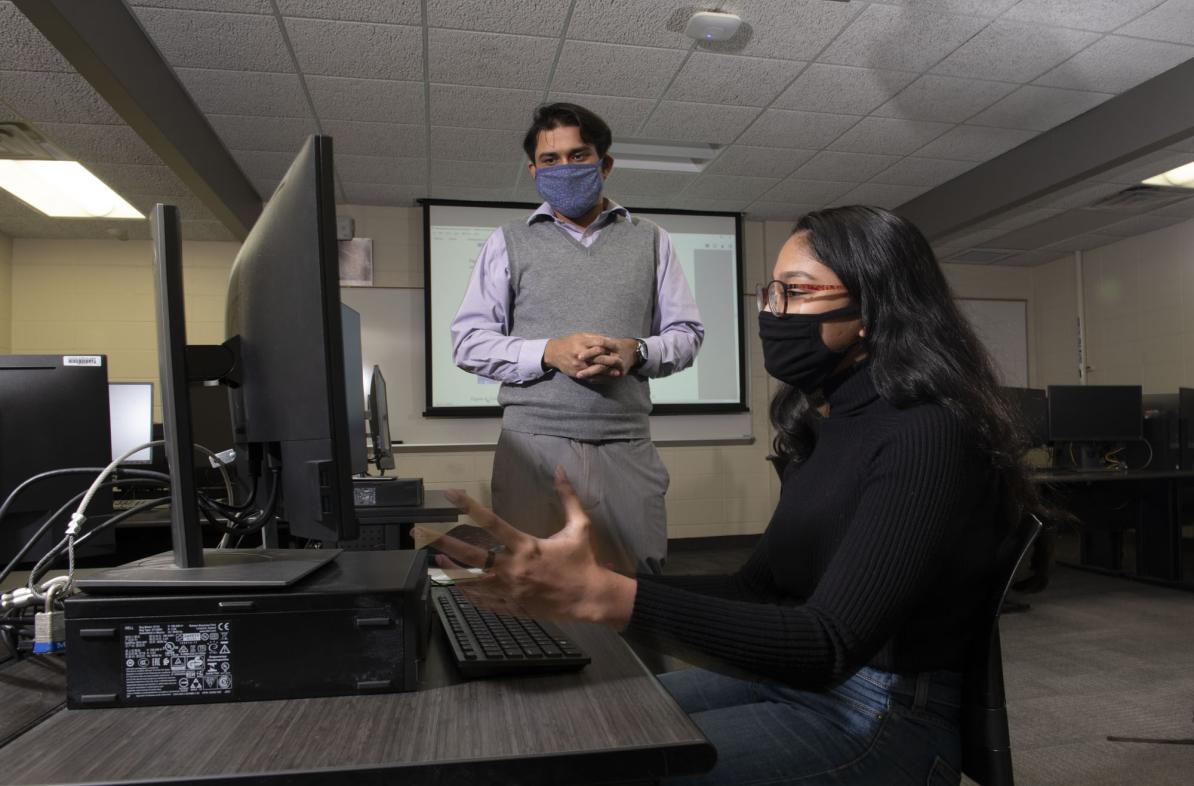ID

Multiple research projects help Blugold gain skills, direction as she looks to future
Story Categories
Authored on
Multiple research projects help Blugold gain skills, direction as she looks to future
Published on:
Intro text
Avi Devy Mohan transferred to UW-Eau Claire because of its undergraduate research program. Still, the Blugold — now a senior computer science and applied mathematics major — never imagined just how much research would shape her future plans.
Sections
For the media
For the media
Image download


